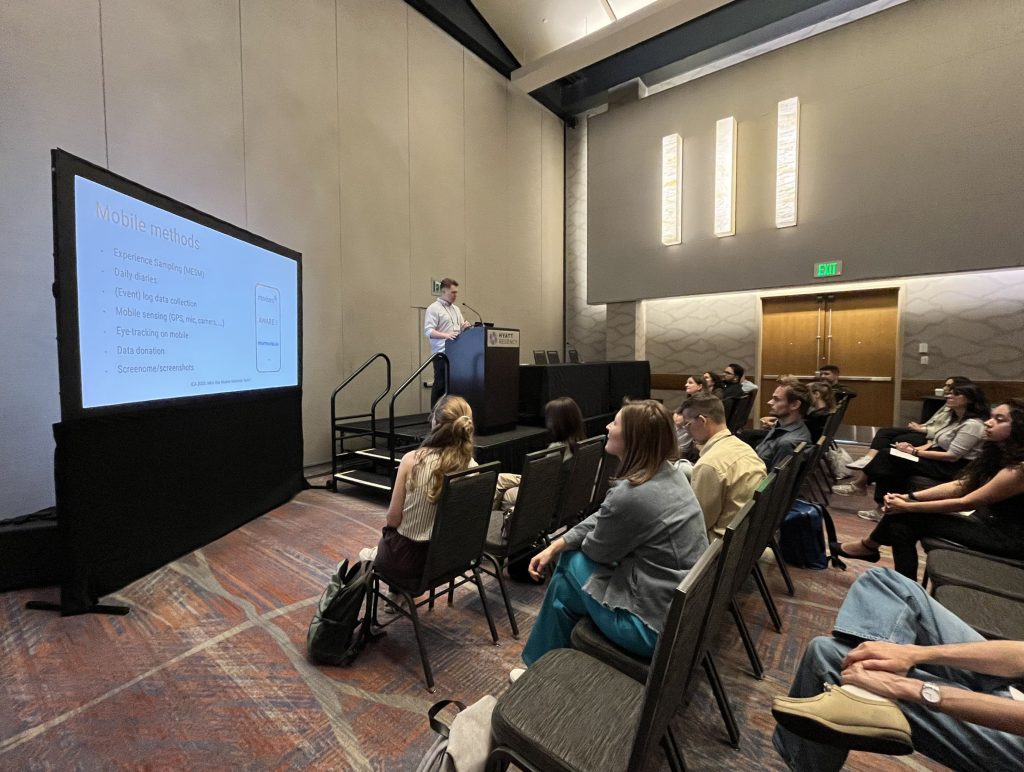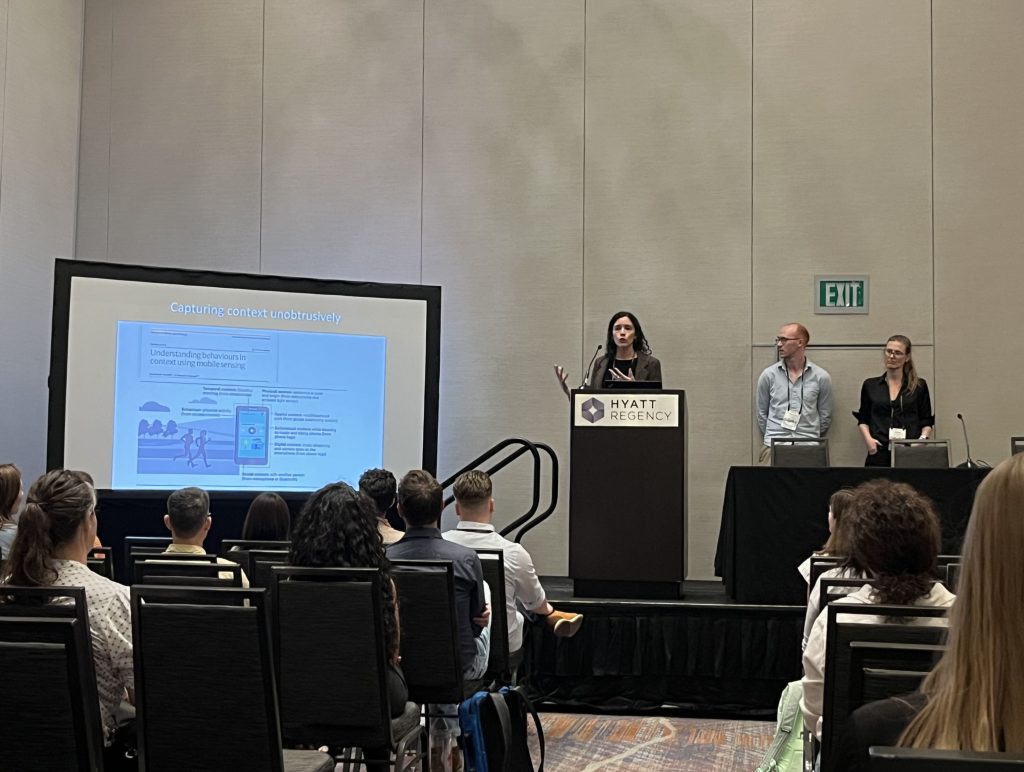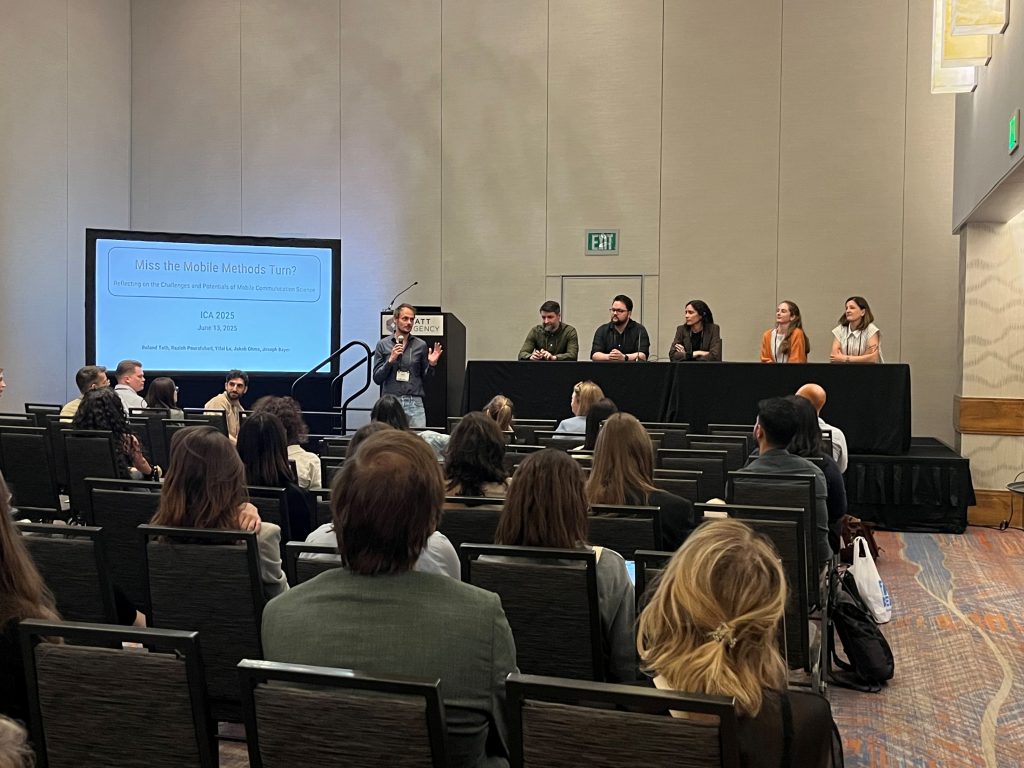This spring, the Methods Lab student assistant, Diana Ignatovich, spent four months at Dartmouth college to research octopus cognition and visual processing.
Hidden in the New England wilderness is an underground laboratory housing three male Octopus bimaculoides that were shipped from the Pacific Ocean for non-invasive study using underwater electroencephalography (EEG). One of the octopuses was named Joseph—after the Weizenbaum Institute’s namesake, computer scientist Joseph Weizenbaum.
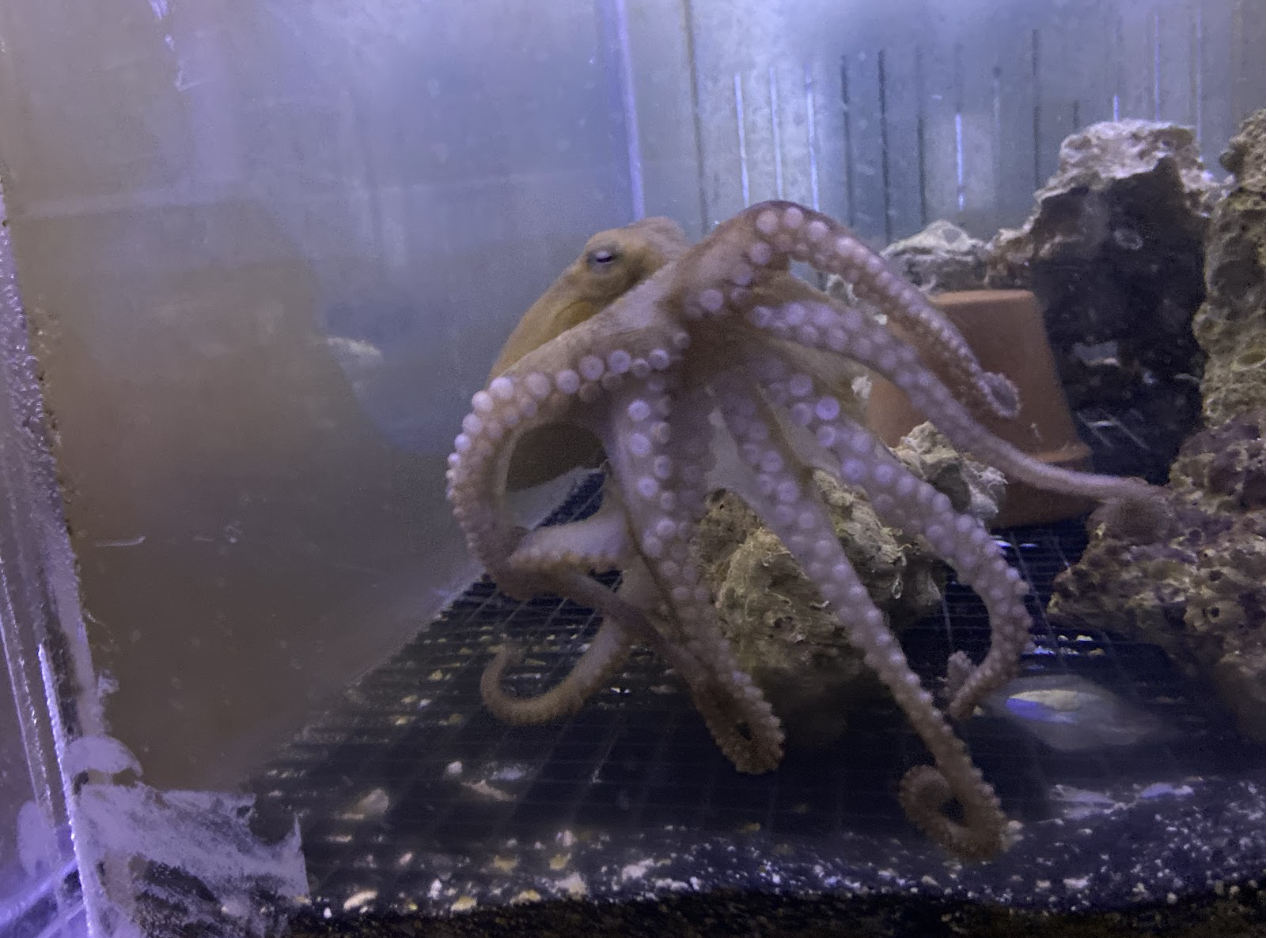
Rather than euthanizing the octopus or holding its tentacles down to understand its incredibly complex and decentralized nervous system, the underwater EEG apparatus used here is methodologically unique, to ensure no octopuses were harmed. This method records the brain’s electrical activity by detecting signals from groups of neurons, which are amplified by the EEG machine and studied as brain waves. To record this data, the experimental tank consisted of a clear plastic cube with two printed circuit boards on top and bottom, lined with tripolar concentric ring electrodes and submerged in saltwater. The tanks were also enriched with toys to encourage cognitive stimulation, and all experimental procedures were conducted in accordance with ethical guidelines approved by the Institutional Animal Care and Use Committee (IACUC).
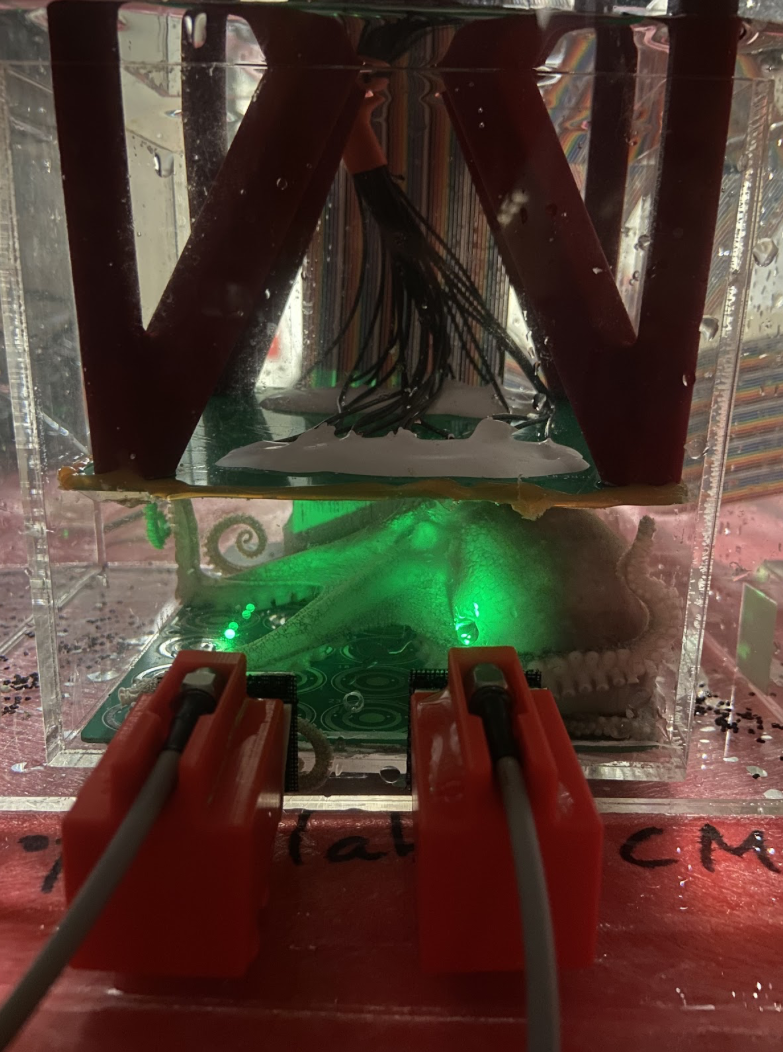
The primary project for this stay was in assessing the neural critical flicker fusion frequency (CFF) of the octopus via steady-state visual evoked potentials of the EEG power spectrum. The CFF threshold refers to the point at which a rapidly flickering light is perceived as steady, which indicates the speed of visual information processing in the brain. This gives insight for neural and visual processing efficiency as well as cognitive functions such as attentional control and overall responsiveness to changing environments. It is also commonly measured in psychophysics via behavioral paradigms, where a participant indicates the observed flicker fusion. However, since Joseph could not tell us about this boundary, the threshold was marked by a drop in EEG signal amplitude as flicker perception diminished. These experiments, performed using LED light at different brightness levels, were then repeated with human testing for comparison, to determine whether octopuses are better adapted to low-light conditions due to their underwater habitat.
The octopuses demonstrated higher critical flicker fusion frequency thresholds compared to humans, likely due to their evolutionary history and environmental conditions, where quick visual responses are necessary to spot prey or avoid predators.
It’s extraordinary that octopuses, despite lacking the rod and cone photoreceptor cells found in most eyes, have adapted to match or even exceed the critical flicker fusion thresholds of creatures like humans. These results are an exciting glimpse into the diversity and complexity of how other species experience their own vastly different worlds in nature.
